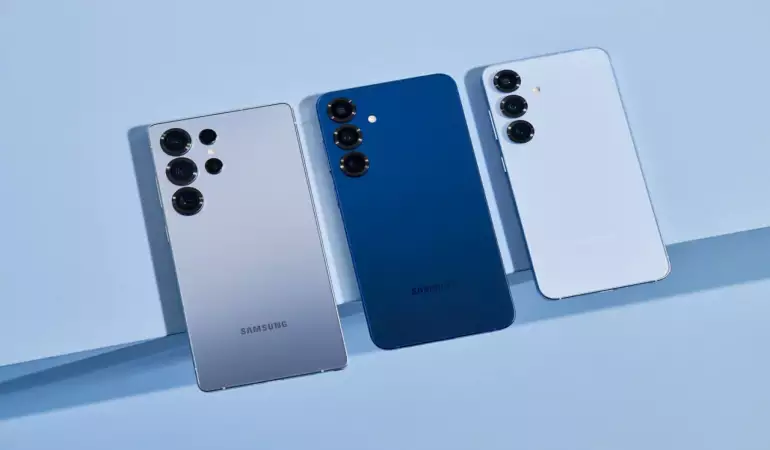Samsung will use post-quantum cryptography to secure mobile communications - what does this mean?
Samsung, the technology company that successfully launched the Galaxy S25 series, has begun developing a new form of advanced mobile security. The latest security system uses post-quantum cryptography (PQC), an advanced algorithm designed to protect user data from the threats that quantum computing may pose in the future.
February 05, 2025 19:04
Looking to the Future
Quantum computing is one of the most revolutionary technologies of our time, with the potential to fundamentally change many industries. Quantum computers solve extremely complex tasks exponentially faster than traditional ones, so their potential – from medicine to logistics – is enormous. For example, quantum algorithms could optimize supply chains or ensure more accurate planning of transportation systems.
However, along with these opportunities come threats. Quantum computers could easily overcome current data encryption methods in the future, so it is necessary to take care of data protection now.
Although widely available quantum computing is not yet a reality, there is a so-called “harvest now, decrypt later” threat – cybercriminals can accumulate encrypted data now, only to decrypt it later using quantum power. This is exactly what Samsung is taking action against.
New Security Standards
Samsung is actively working on PQC technologies to ensure that data remains secure even in the context of the quantum era. The company follows the recommendations of the National Institute of Standards and Technology (NIST), which sets guidelines for protecting against quantum attacks.
One such protection method is the ML-KEM (Module-Lattice-Based Key-Encapsulation Mechanism) algorithm, which uses lattice mathematics. This complex system of multi-dimensional structures ensures that even quantum computers cannot easily decrypt data. This technology is ideal for secure communication between devices, as it ensures a high level of security and optimal performance.
NIST PQC standards already help protect a variety of digital data, from confidential emails to e-commerce transactions. Samsung is applying these standards to ensure that its cloud services are protected from future quantum threats.
Quantum-resistant protection
Committed to protecting consumer data in an era of evolving technology, Samsung is incorporating post-quantum enhanced data protection (EDP) into its most advanced security system, Samsung Knox Matrix.
Currently, EDP provides end-to-end data encryption for users when backing up, restoring, or syncing via Samsung Cloud.
The integration of PQC technology into Knox Matrix adds another layer of protection, setting a new standard for cloud security on mobile devices. Knox Matrix will support seamless quantum-resistant protection for Samsung Cloud backups and synced data across smartphones, TVs, and digital home appliances.
This feature will debut on the new Galaxy S25 series with One UI 7, providing Galaxy users with enhanced protection against quantum computing threats.




